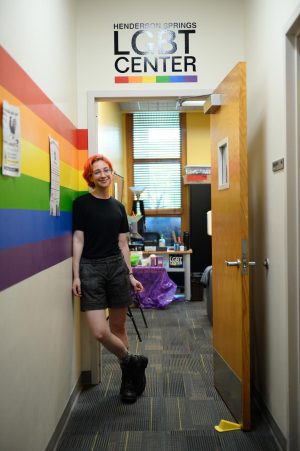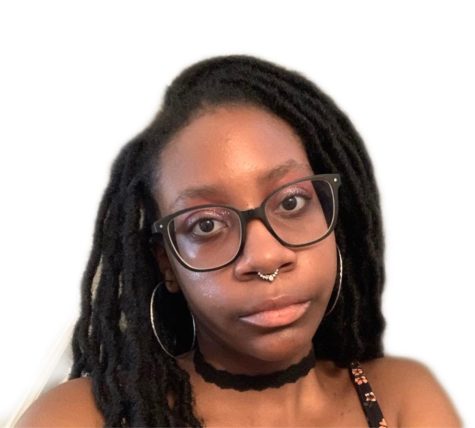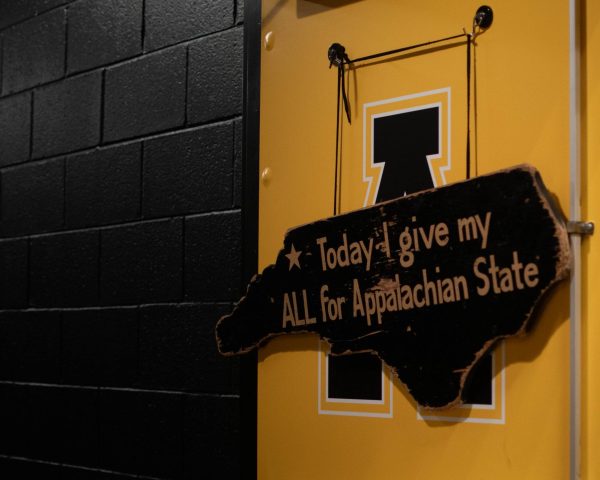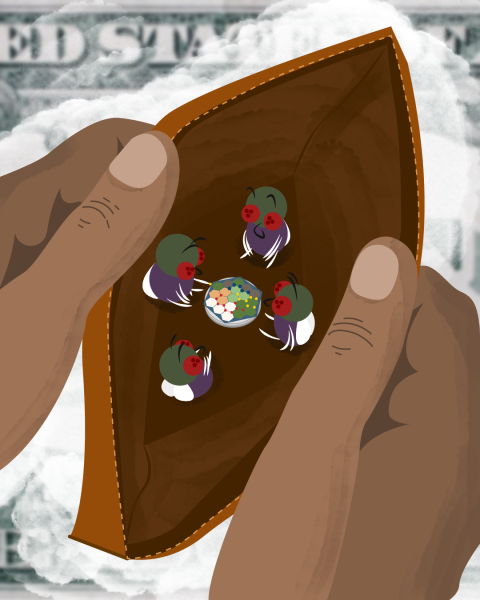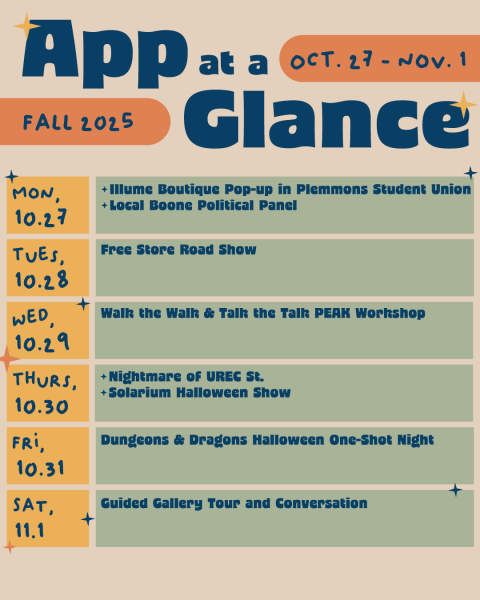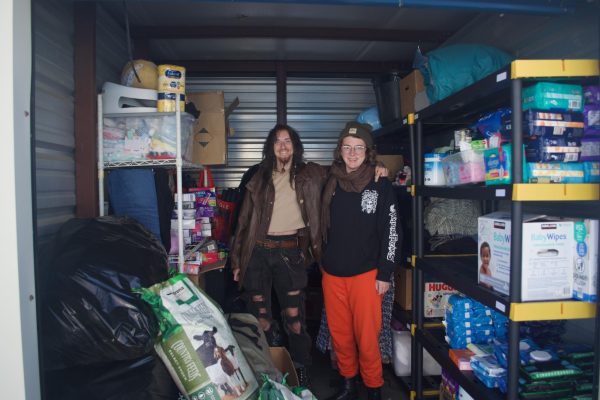Being Black at App, navigating a PWI
September 16, 2022
The Black Student Association invited university students to an open discussion Sept. 12 highlighting the Black experience at a predominantly white institution.
The forum was hosted by Victoria Virella, a BSA historian. During the meeting, the floor opened to all students to explore racism, feeling excluded and coping with isolation on the university campus.
As of fall 2021, the university cites that 18.3% underrepresented racial and minority groups attend App State. As of 2020, 81.6% of undergraduate and graduate students are white while 3.91% of the total population is Black, according to DataUSA.
In small groups, students discussed their time at the university, the racism they’ve encountered and how being Black influenced their time at the university.
To kickstart the open floor, Virella shared an occurrence that happened the previous week on an AppalCart bus.
Virella, a Black man and a Black woman sat at the front of the bus. While mostly empty, a few students lingered in the back. In a traffic jam, Virella said she witnessed the man walk up to the white driver and ask if the bus route included his stop.
“He asked him politely and loud enough,” said Virella, a junior exercise science major. “The bus driver doesn’t acknowledge him, doesn’t turn his head, looking straight forward and acting like he didn’t even hear him.”
Virella said the man returned to his seat and spoke with the woman. After a moment, the man went back to the driver and asked again about the bus stop.
“The bus driver still doesn’t acknowledge him,” Virella said. “But the whole time, and you can see in the mirror, the bus driver’s face was contorted into disgust.”
Following the last attempt, the Black woman tried to ask the driver, knocking on the divider to get his attention.
“He turns to look at her, face of disgust, says ‘yeah’ and tells her to go sit back down,” Virella said. “Mind y’all, you don’t have to sit down on the bus but he’s specifically telling her to go sit back down.”
Virella said a white woman then approached from the back of the bus and was verbally greeted by the driver without prompting. After an exchange of ‘hellos,’ the woman asks if her stop is along the bus route. Virella said he answered her question without animosity in his tone.
“Obviously, I had it happen to me. I know it happens and everything. But I’m like ‘really dude? You don’t want to do your own job?’” Virella said. “It’s the Black invisibility for me. The fact that we aren’t even acknowledged, no matter how polite or loud you are.”
Craig Hughes, director of AppalCart, said the company will investigate this incident further.
“AppalCART takes all reports of discrimination seriously and follows up according to our Title VI Policy,” Hughes said. “It is AppalCART’s policy to ensure that no person shall, on the grounds of race, color, national origin, sex, creed, age or disability, be excluded from participation in, be denied the benefits of, or be otherwise subjected to discrimination under any of our programs and activities.”
Other shared experiences include being called the N-word with the hard “R” while walking to Waffle House, reading racist comments under the BlackatAppState Instagram account and feeling uncomfortable being the only Black person in the room.
LaPrincess Nobles, a senior digital marketing major, explained her experience last summer studying abroad in France with other App State students. Nobles was one of two Black students on the trip.
“Most of the time I was left behind or left out of everything,” Nobles said. “It got to a point where when I wanted to go home because I was crying and genuinely being forgotten. One of the advisors said ‘it looks like you don’t want no one to be around you.’’
Nobles said while trying to meet up with the rest of her classmates, she was met with silence in the group chat.
“I was trying to meet up with some of the people in the group to go see the Van Gogh exhibit, they said they were going to text me when they’re on their way and I can meet them there,” Nobles said. “They never did and they completely left me trying to figure out how to get to places by myself.”
Nobles had to navigate France with the directions on her phone.
“If something had happened and they just kinda left me without telling me, no one is going to look for me. It was just awful,” Nobles said.
Nobles said the group told her they didn’t want anyone to feel left out but never communicated with her. The group posted on the Snapchat group after the fact. An effort was made on the last day of the trip.
When talking to her mom, Nobles said her mom didn’t want her to “end up like some of them girls that go to all white sleepovers and end up committing ‘suicide,’” referencing the Tamla Horsford case.
Following the open floor, the group examined possible solutions and safety tips. Virella asked freshmen to be prepared and aware of their surroundings.
“Sometimes, you’ll be the only Black person, the only person of color, in class, in a club. I need y’all to be confident. Don’t shrink into y’all selves, be who you are,” Virella said. “Don’t let them scare you off. Y’all came here for an education, get y’all’s education.”
Another point was to always search for a way out, physically or otherwise.
“Whether it’s a physical door or an excuse,” Virella said. “If you’re at a party and they’re being a little crazy, you need to find that door. Y’all know if the cops come, y’all will be the first ones they see.”
With combating isolation, Virella said to take the time to connect with others and get out of your comfort zone with clubs. Black inclusive spaces like Queen in You, BSA, and Multicultural Center hold events in Plemmons Student Union throughout the semester.


